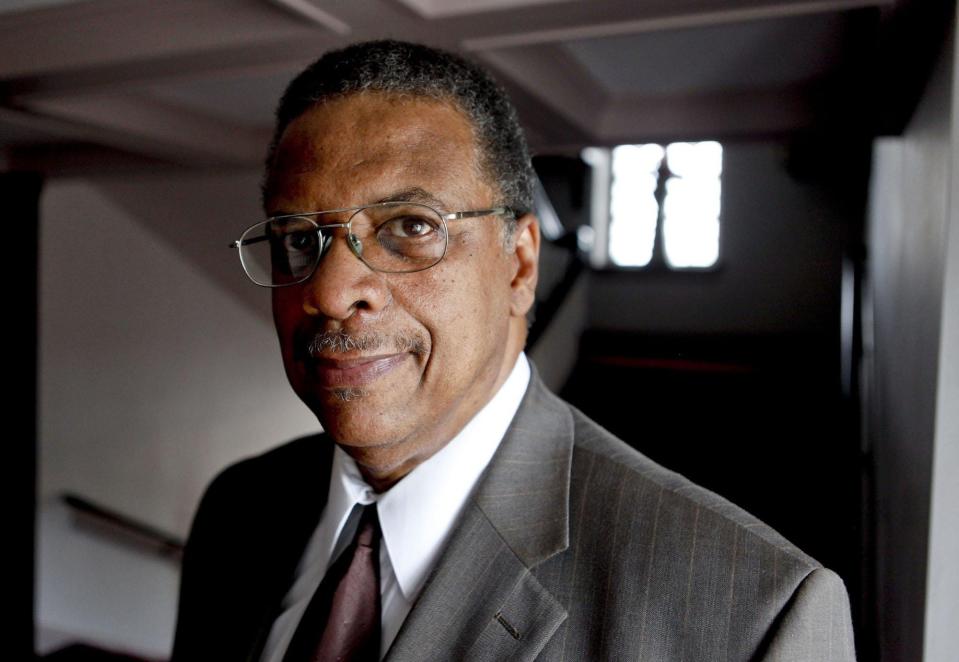Why study Black history? Erie pastor Charles Mock answers the question
Why the need for Black history? Isn't there only a need for human history?
Not when "human" has been so narrowly defined or treated as less than human that it leaves out the full stories of almost 13% of America's population. Also, because of the projected 2044 number.

By 2044, the majority of the U.S. population will be people of color. According to analysis of U.S. Census Bureau projections, by 2044, the United States will have no clear racial or ethnic majority. According to new population projections, whites will make up 49.7% of the population, followed by Latinos at 25%, African Americans at 12.7%, Asians at 7.9%, and 3.7% of the population will identify as multiracial.
Why Black history? Because truth matters to everyone or at least it should. Let's sideline the traditional Black self-esteem reason for Black history and fast forward to white self-esteem.
More:Slavery’s legacy in Erie and the unfulfilled promise of Juneteenth
White self-esteem is connected to complete history. No white person would want to live with someone who he or she thought was their biological father. At some point, he or she would want the whole truth. Who, what, when, where and why.
More:Let's get to work in Erie County — on racial disparities and economic growth
No white person would want his or her mother tell him their father died long ago when he was present and available.
No white person would want to go through life believing a report that his or her father was brutal, abusive, irresponsible, a womanizer and regretted their birth. He or she would want the whole story.
Black history is about the truth, the whole truth and nothing but the truth — so help us God!
It is about facts not fiction that make one parent look good and the other bad.
White history, like the Bible, should reveal the good, the bad and the ugly. The Bible does not protect us from the awful truths about us as human beings in the name of psychological comfort and well-being.
The most unfortunate and regrettable thing about my college and seminary experience was my absence not from class but from history. Not that white professors were not able to teach world religions. The problem was twofold.
Number one, they could do so without providing valuable information about the role of African and Egyptian theology. This was true especially for seminary. I was tremendously grateful to sit in class at the feet of Dr. Sam Roberts, Professor of American History. He drilled down on the positive role Blacks played in the development of this country economically through labor and giftedness in knowledge and wisdom. What a deficit there would have been in my theological education were it not for Dean David Shannon. I still draw on his wonderful lectures on the Psalms and how he integrated them with slave songs and their meaning.
Secondly, Black history is about the knowledge of facts transmitted by relations as well as word of mouth.
Black historians and theologians in particular provide learning that derived from a shared culture of being. Having gone through the rough waters of racism and the adverse winds of gender discrimination, they are better positioned to embrace and serve as surrogate brothers and sisters of a positive, "You can do this" mentality — not to mention wonderful counselors at a deeper level.
So the significance of Black history is revealed in such areas as:
psychological well-being;
social well-being in interracial relations;
human well-being through the whole truth, which in turn, replaces derision and lies with respect and human dignity for ourselves and others;
and government well-being because fear is replaced by faith in the giftedness of others. The achievements we witness through the athletic giftedness of Black, brown and yellow Americans is rooted in opportunities for entrance and advancement.
Rush Limbaugh used the expression, "I keep half my brain tied behind my back, as always, my friends, just to make things fair here — fair and sustainable, for the callers."
There are persons who truly believe this about their level of knowledge, when in reality they know very little about Black Americans. They know what they know but not what they don't know.
Unfortunately, there is still a strong need for the past and ongoing stories of racial and ethnic peoples in a fast-changing American populace. Why? Because the whole truth is necessary for human well-being.
Pastor Charles Mock, Community Baptist Church, Erie
This article originally appeared on Erie Times-News: Erie pastor Charles Mock answers the question, why study Black history

